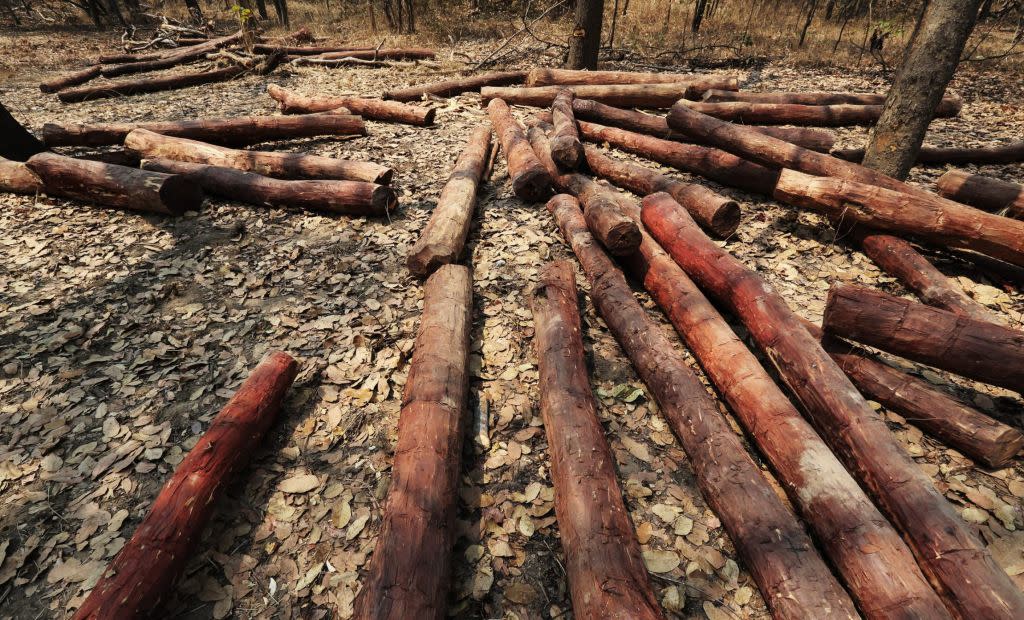China’s unending demand for rosewood furniture is damaging African forests

A high-level government scandal in Gabon earlier this year has turned out to be the perfect illustration for just how serious the business of rosewood furniture is across Africa.
Since first being crafted in China as far back as 1,000 BC, rosewood furniture, or hongmu as it’s also known, has been fashioned into imperial-era styled furniture pieces. But with several of China’s local rosewood types now listed as endangered or approaching that point, loggers and businesses have increasingly looked towards forests across Africa as a source for rosewood substitutes to support the local $15 billion rosewood furniture market.
For its part, Gabon is home to Kezavingo, a type of African rosewood, which is revered and believed to offer protection to locals, and are sources of leaves used in traditional rites and herbal medicine. But Gabon’s Kezavingo trees are also a target for a bustling illegal logging trade as a major seizure at a Gabonese port proved. Over 390 containers loaded with Kezavingo estimated at over $250 million were confiscated by officials in February.

A table made from rosewood at a furniture shop in Beijing.
When around 350 of the containers disappeared a month later, it also exposed the corruption and lax regulation that leaves the trees as vulnerable targets. Even though 200 of the missing containers were found and re-seized, Gabon’s president Ali Bongo fired vice president Pierre Claver Maganga Moussavou and forestry and environment minister Guy Bertrand Mapangou amid the smuggling scandal.
Gabon is not the only African country whose forests are at risk.
In the Democratic Republic of Congo, Mukula trees, which can be passed as traditional rosewood are also targeted. Like in Gabon, Mukula hardwood trees are considered essential to local ecosystems and are often used for herbal medicine. But the rare hardwood trees unique to central and southern Africa are being felled and exported amid high Chinese demand. Greenpeace, the environmental non-profit estimates that around 15,000 tonnes of Mukula, priced at up to $3,200 per tonne, is sold monthly in four major markets in eastern China.
As illegal logging and exports continue to reflect the often extractive nature of China’s relationship with Africa, it will take years to mitigate the environmental impact, including deforestation, as slow-growing African rosewood trees can take up to 100 years to grow.
For their part, some African countries have attempted to protect key elements of their forests with Gabon and Zambia banning exports of African rosewood. However, regulation is unlikely to stem the flow of exports if not properly implemented: a report in May found that around six million rosewood trees have been felled and exported to China since 2012 with corrupt officials forging paperwork to facilitate the illegal exports.
Sign up to the Quartz Africa Weekly Brief here for news and analysis on African business, tech and innovation in your inbox
Sign up for the Quartz Daily Brief, our free daily newsletter with the world’s most important and interesting news.
More stories from Quartz:

